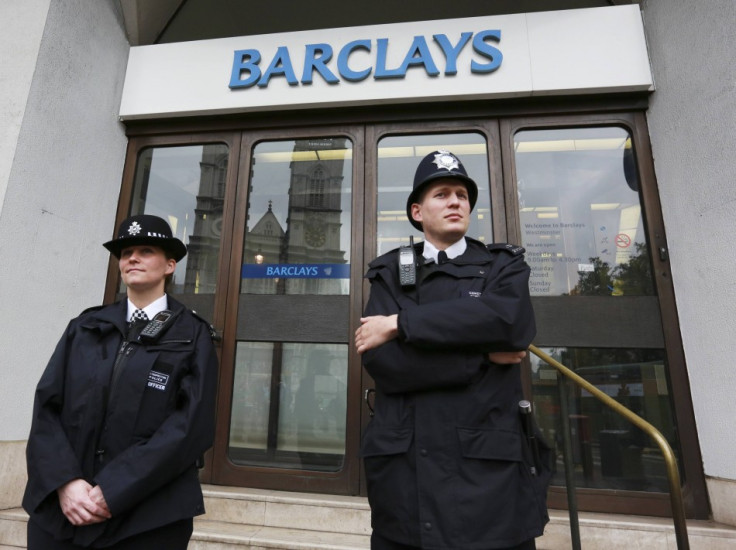Serious Fraud Office to Investigate Barclays, Other Banks in Libor Fixing Scandal

The UK's Serious Fraud Office (SFO) revealed that it is formally investigating Barclays in the the London Interbank Offered Rate (LIBOR) fixing scandal that has dominated the news over the past week.
In a one sentence statement, the governmental unit said: "The SFO Director David Green QC has today decided formally to accept the LIBOR matter for investigation."
When IBTimes UK spoke to the SFO's press office immediately after the statement to clarify whether this included any other banks, other than Barclays, the spokesperson responded: "As you can tell, we said 'Libor matter' which is wide ranging and encompassing and Barclays falls under that."
Then, when IBTimes UK asked if it would include the individual traders or Bob Diamond in that "wide-range", the spokeperson said that "we will not comment or feel comfortable commenting on individual firms or people."
Another SFO spokesperson said "we deliberately do not name companies or individuals in our press releases about investigations."
From Civil to Criminal
Barclays Chairman Marcus Agius stepped down on July 2 and CEO Bob Diamond resigned the following day, after bowing down to pressure to exit the investment bank in the aftermath of the London Interbank Offered Rate (LIBOR) scandal, which cost it a record £290m in settlement fees with US and UK regulators.
Initial public and governmental response garnered unified relief that someone has taken "responsibility" for the spate of banking scandals and damaged relations between its customers and catalysed calls for a criminal investigation.
The SFO said on July 2 that it will decide within a month whether it will press criminal charges linked to the Libor fixing scam.
"Now that the investigation into the issue of regulatory misbehaviour has concluded [by the Financial Services Authority], the SFO are considering whether it is both appropriate and possible to bring criminal prosecutions," the SFO said in a statement. "The issues are complex and the assessment of the evidence the FSA has gathered will take a short time, but we hope to come to a conclusion within a month."
Today's announcement confirms that Barclays and possibly others companies and individuals will be investigated into whether the SFO can bring about a criminal prosecution.
While the court of public opinion maybe sated for a short while, IBTimes UK revealed last week that calls for a criminal investigation into Barclays' recently resigned CEO Bob Diamond and individuals involved in the Libor fixing scandal may meet a wall as would "too difficult" to mount a criminal charge against them.
"Despite the findings from FSA and others, it is still very difficult to mount a successful criminal prosecution," said Owen Watkins, corporate barrister at Lewis Silkin, who used to work at the FSA and before that the Securities and Investments Board. "The authorities already know who they are and if the SFO [Serious Fraud Office] did want to bring about criminal charges, it would be the traders at the coalface that would most likely be the targets. The SFO would need to consider whether the evidence would support a charge of fraud and/or conspiracy to defraud."
One of the top corporate barristers also highlighted how different and how difficult it is to launch a criminal prosecution against an individual, even if civil proceedings have already been closed.
"In a criminal case, the prosecution has to satisfy a higher burden of proof - beyond reasonable doubt. People may think this is easier with the addition of civil proceedings but this is not the case," he added. "It seems to me unlikely that Bob Diamond would face criminal proceedings unless there is a smoking gun piece of evidence, for example in the form of an email or record of a phone call or a testimony from the upper echelons of Barclays. There are really long odds on a successful criminal prosecution of the most senior individuals for events that happen at the coalface of operations - they may simply not be aware of what is going on. But in this case the regulators can take civil action against them, for a failure to have proper systems and controls in place, for example."
© Copyright IBTimes 2025. All rights reserved.






















